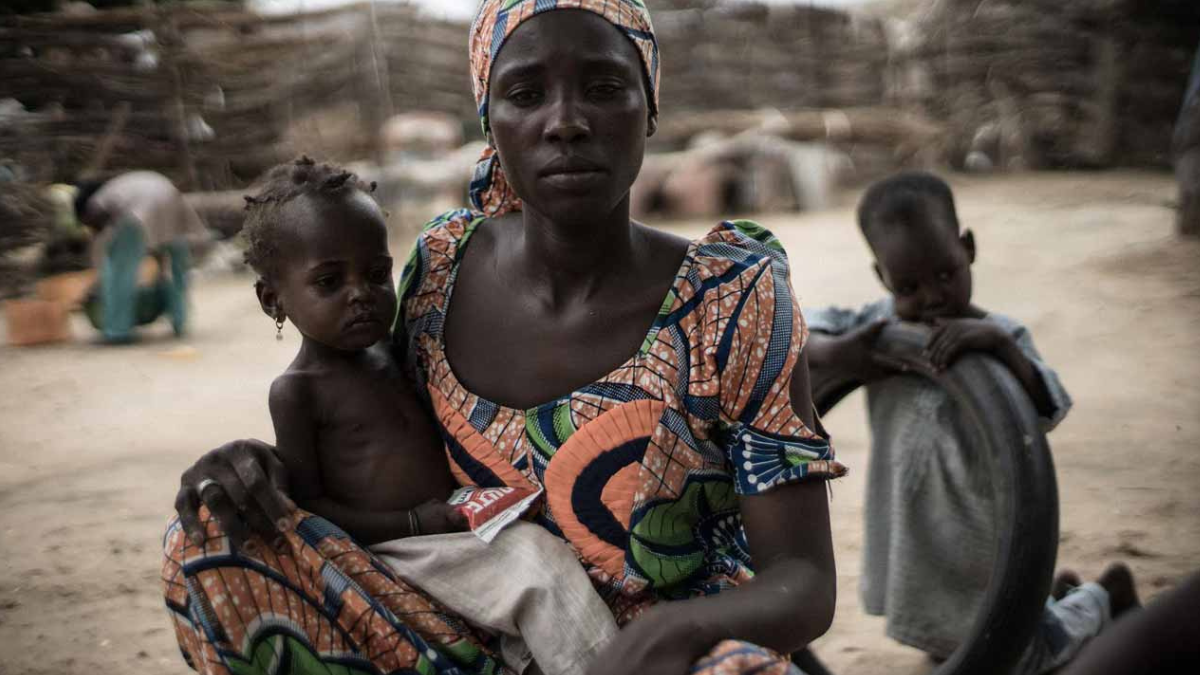There have been reported cases of cholera outbreak in Nigeria. As at the time of writing this article, it has hit 1,579 cases nationwide. The reason for increase in the number of people affected is that there is a relationship between poverty, hunger and disease. In Nigeria today, the poverty rate is very high among Nigerians, especially the low-income earners who of course form majority of the population.
In Nigeria, there is no middle income earners, it is either you are rich or poor. In 2019, states in the North including Sokoto and Taraba recorded the highest percentage of people living below poverty line. According to development news, research and data, the poverty rate of Nigeria in 2023 was 38.9 percent.
Poverty index is measured by the number of people living on less than $2 per day. If converted with the current exchange rate of a dollar it is less than N3,000 per day. Considering the inflationary trend in the country and the attendant increase in the prices of goods and services, can N3,000 feed anyone in Nigeria today for a day? It is impossible. This has resulted in serious hunger and starvation experienced by majority of Nigerians who cannot afford basic meal a day for themselves and members of their family.
When hunger strikes and no food to eat, the tendency for people to fall sick to different ailments, including cholera is very high. A hungry person who goes without food for days will have his or her immunity reduced or eliminated. When hit by a disease will fall sick and the result is death when there is no immediate medical solution.
The 2022 poverty index released showed that over 130 million Nigerians are poor. Many reports conducted by local and international organizations like National Bureau of Statistics and the World Bank show that Nigeria faces serious challenge of poverty for millions of the citizens. Despite the current economic situation, the World Bank in April 2023 projection noted additional 13 million Nigerians would be below poverty line in 2025 if nothing is done to improve the economy and stem the increasing growth in population. The reason given is increase in the prizes of food items occasioned by inflation, which has reduced the purchasing power of low- income earning Nigerians.
The effects of poverty, hunger and disease on a country’s population are many. First, it will reduce the productive capacity of the citizens. A hungry or sick person cannot do anything to help himself or contribute anything meaningful to the economy or society as a whole. Secondly, government will spend more money in providing healthcare and vaccine or palliatives. These monies would have been used for other development purposes. For instance, the cholera outbreak in Nigeria is affecting the poor citizens who cannot afford good food, housing and medication.
Poverty has compelled many Nigerians to consume anything as food without minding the source or composition. The children and the older members of the society are more vulnerable to diseases. For example, poverty affects children’s health, education, social and emotional wellbeing.
Nigeria’s economy has been on a downward slide for more than a decade. Unfortunately, successive governments have not given it the attention it deserves to recover Nigeria’s economy from recession. Everyday the naira is depreciating against other currencies in the international forex exchange market. The reason for this is not far fetched. Nigeria has over depended on crude oil as its major source of revenue. It has neglected agriculture that used to be the mainstay of the economy before crude oil was discovered.
Again, Nigeria has dropped from being a producer nation to a consuming one. Many industries that used to operate in Nigeria have relocated due to high cost of production due to lack of resources, electricity, infrastructure, insecurity, high tariff and other internal factors. The consequence of that is increased unemployment, scarcity and high cost of goods. The Gross Domestic Product of the country is no doubt adversely affected. There lies the cause of poverty and hunger among the people.
However, to address the increasing rate of poverty, hunger and diseases spreading like wild fire in Nigeria, government at all levels must take decisive action to rework the economy. The first step is to diversify the economy and take Nigeria back to its productive years, where agriculture flourished. Nigeria with its abundant human resources and fertile land has no reason to import food. Nigerians want to see the Federal, State and Local Government make it a policy to grow one particular crop or the other. There should be heavy investment in the various aspects of agriculture, Nigeria has the agricultural potentials to become the food basket of the world if the leaders could carefully and deliberately plan, execute, monitor and control agriculture.
Furthermore, the Federal Government should grant tax rebate to some key investors in agriculture and other allied industries to encourage industrial growth. This will help provide employment for the millions of jobless Nigerians. The Federal Government should decisively and deliberately improve basic infrastructure and facilities across the country.
For example, trunk A Federal Roads should be constructed and reconstructed to enable movement of goods and services across the country. Electricity should be improved upon as well to guarantee constant supply of electricity to power the industries. Without adequate power generation, distribution and supply in Nigeria, there cannot be industrial and technological growth.
To also ensure the easy and cheap transportation of goods and services across the country, the Federal Government must as a matter of necessity review the prizes of petroleum products downward to enable motorists, tanker and truck drivers purchase petroleum products at a cheaper rate, which in turn will reduce the cost of goods and services. The Federal, States and Local Government should consider the review of the minimum wage for Nigerian workers upward to be in tune with the prevailing economic realities. The current N30,000 minimum wage paid Nigerian workers in most states is no longer realistic in view of the high cost of goods and services. The current negotiation concerning the minimum wage is dragging for too long. The Federal Government should show empathy, sympathy and mercy so that Nigerian workers could breathe and live as human beings.
It should not be a case of poverty, hunger and disease for majority of Nigerians and affluence and enjoyment for the few political leaders in government. The commonwealth of Nigeria should be used and distributed to benefit all. It should be used to give meaningful life to all Nigerians, irrespective of tribe or status in the society.
Importantly, Mr. President, Mr. Governor, Senators, House of Representative Members, Ministers, Local Government Chairmen and all those at the healm of affairs should fear God, respect God and reduce the wastefulness in governance. There is too much superfluous spending by these categories of Senior Public Servants, which amount to waste of public funds that can be used for meaningful development. The high level of insecurity should be tackled to pave way for peace. Where there is peace development thrives. Insecurity is another factor affecting food production in Nigeria, as many farmers are afraid to go to the farm.
Again cattle herders in most cases graze their cattle in people’s farm thereby destroying the crops they have laboured to cultivate.
In all, there is serious poverty and hunger in Nigeria. If it is not curtailed, it could boomerang and have a spill-over effect on the society as a whole. As the saying goes, “a hungry man is an angry man”. There is a limit to which human being can tolerate hunger, beyond which its consequences can be worse than a storm.
Egharevba, a columnist, writes from Benin City


